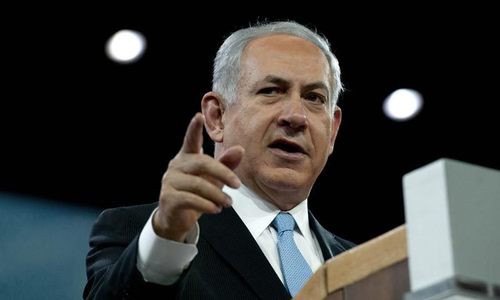JERUSALEM: Israel approved building permits on Sunday for hundreds of homes in three East Jerusalem settlements, two days after US President Donald Trump took office, expecting him to row back on the last administration’s criticism of such projects.
The housing projects, on land that the Palestinians seek as part of a future state, had been taken off the Jerusalem municipality’s agenda in December at the last minute at the request of Prime Minister Benjamin Netanyahu, in order to avoid further censure from the administration of Barack Obama.
Israel’s right wing expects Trump’s attitude towards settlements built in the West Bank and East Jerusalem, areas Israel captured in a 1967 war, to be far more supportive than that of his predecessor.
Hundreds of other units awaiting approval
Jerusalem’s City Hall approved the building permits for more than 560 units in the urban settlements of Pisgat Zeev, Ramat Shlomo and Ramot, areas annexed to Jerusalem in a move unrecognised internationally.
Meir Turgeman, the chairman of the municipality’s planning and building committee, told Israel Radio that the permits had been held up until the end of the Obama administration.
“I was told to wait until Trump takes office because he has no problem with building in Jerusalem,” Turgeman said, adding there were hundreds more units waiting for approval.
The Palestinians denounced the move. “We strongly condemn the Israeli decision to approve the construction,” Nabil Abu Rdainah, spokesman for Palestinian President Mahmoud Abbas, said.
In its final weeks, the Obama administration angered the Israeli government by withholding a traditional US veto of an anti-settlement resolution at the United Nations Security Council, enabling the measure to pass.
Trump’s nominee to be US ambassador to the United Nations, Nikki Haley, condemned the world body over its treatment of Israel at her Senate confirmation hearing on Wednesday.
In a proposal that has drawn a Palestinian outcry, Trump has pledged to move the US embassy from Tel Aviv to Jerusalem.
Israel sees all Jerusalem as its capital but most of the world does not, seeing its final status as a matter for peace negotiations. The Palestinians have said an embassy move would kill any prospect for peace. Negotiations broke down in 2014.
Trump has also appointed a new US ambassador to Israel, David Friedman, who is considered a settlements supporter.
Commentators in Israel have said it was too early to tell what Trump’s policy on these matters will actually be.
Most countries consider settlement activity illegal and an obstacle to peace. Israel disagrees, citing a biblical, historical and political connection to the land — which the Palestinians also claim — as well as security interests.
Published in Dawn, January 23rd, 2017














































